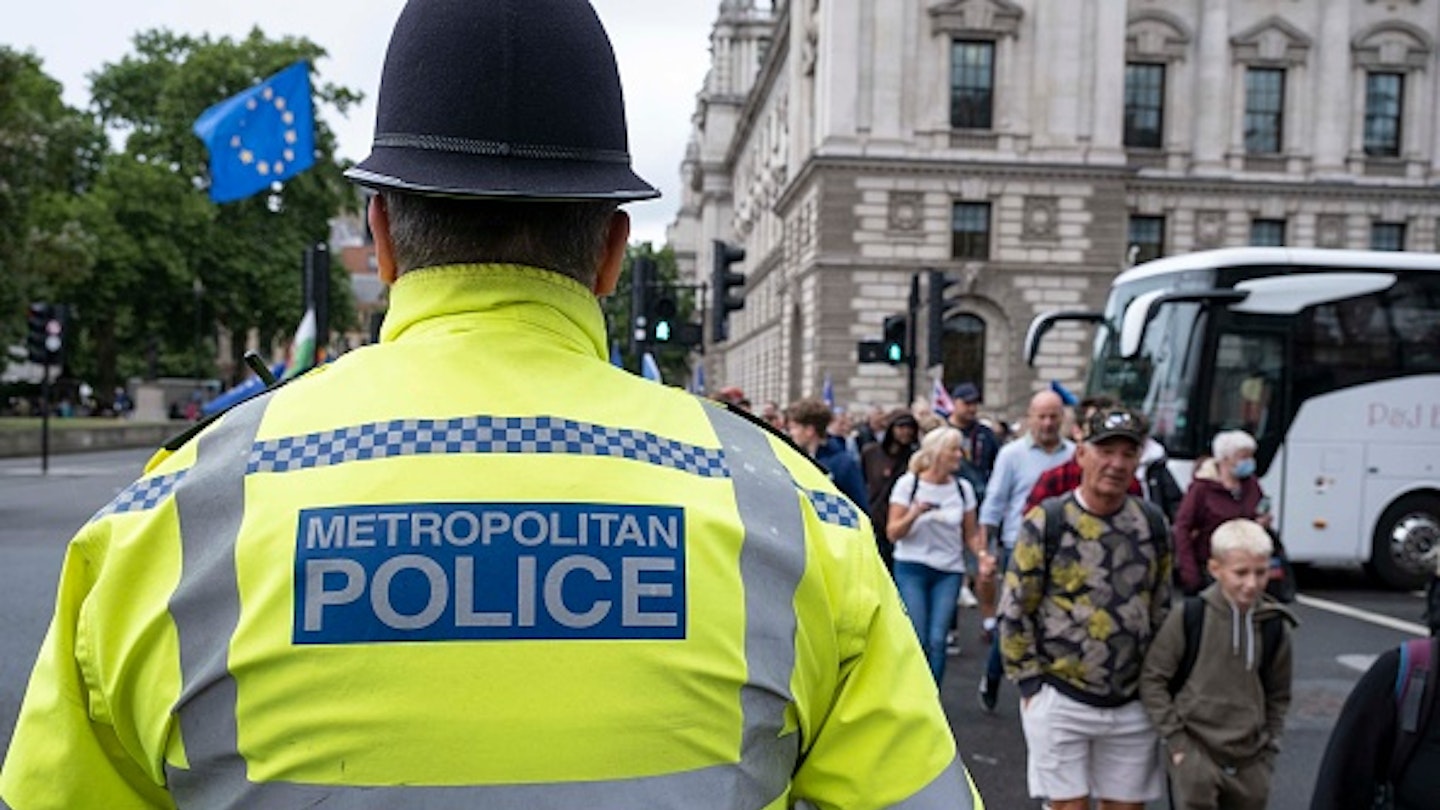Today, former Met Police officer David Carrick received 36 life sentences after pleading guilty to 85 offences, including multiple rapes. He was told he will serve at least 30 years in prison for his attacks on 12 women. According to the BBC, Carrick showed no emotion as the judge delivered her sentence and described him as 'as a monster and someone who abused his trust as an officer supposed to be upholding the law.'
During the two-day hearing at Southwark Crown Court, prosecutor Tom Little KC read out victim impact statements, written by the women involved in the case. According to the i, one said she had felt like she had 'encountered evil'. Others revealed how they feared for their lives. One woman, who said she wrote the statement so she could be heard, spoke of feeling 'very low inside and out.'
'My body is very tired. I don’t like myself. I feel ugly and sad. When I look in the mirror and I see my sad face, I wonder how someone can do this to me. I am a nice person inside and out and I did not deserve all of this, no one should,' she wrote.
Another detailed how she felt 'trapped' and 'couldn’t see an escape' while he abused her. Her statement read: 'There are so many mental and physical scars that remain.'
In her opening remarks, Mrs Justice Cheema-Grubb said Carrick had taken 'monstrous advantage' of his victims with whom he had 'brutal, controlling and coercive relationships' and that he 'behaved as if you were untouchable', adding it was a 'spectacular downfall for a man charged with upholding the law' having lost his liberty, job and status.
At his sentencing today, the Court heard that Carrick attempted to kill himself while on remand at Belmarsh prison. He was detained in a secure hospital but was found not to be suffering from any mental disorder. To this point, the judge said this was 'a self-pitying reaction to the shame brought on by these proceedings, rather than remorse.'
Responding to his sentencing, Farah Nazeer, chief executive of Women's Aid, told BBC News that while the disgraced officer's prison time is an 'acceptable sentence in a very, very unacceptable situation', she says it comes '17 years, 12 victims and at least 85 offences too late.'
The judge explained she would not impose on Carrick a whole-life order - a sentence which would have meant he would never have been released from prison because the threshold for such a punishment was not met, a sentence which Sarah Everard's killer, Met police officer Wayne Couzens, received.
For Carrick, she said a 'just and proportionate punishment' would have been a life sentence with a minimum term of 60 years. But, acknowledging Carrick's guilty pleas, she applied a 20% discount, and deducted a third from the resulting term of 48 years. From the remaining 32 years, she subtracted 491 days - the time Carrick has already spent in custody - meaning that the time he will have to serve in prison before being considered for parole is 30 years and 239 days, according to BBC News.
'We should have spotted his pattern of abusive behaviour'
Carrick, 48, pleaded guilty at Southwark Crown Court last month to 49 offences across two decades, which include dozens of rape and sexual offences against 12 women. He met some victims through dating websites; he would control what they wore, what they ate, where they slept and even stopped some of the women from speaking to their own children.
But yet Carrick, who admitted 24 counts of rape, was only suspended from duty when he was arrested in October 2021.
His offences spanned 17 years and mostly took place where he lived in Hertfordshire. The Met has apologised after it emerged he had come to the attention of police over nine incidents, including rape allegations, between 2000 and 2021.
Assistant Commissioner Barbara Gray, the Met's lead for professionalism, said: ‘We should have spotted his pattern of abusive behaviour and because we didn't, we missed opportunities to remove him from the organisation. We are truly sorry that being able to continue to use his role as a police officer may have prolonged the suffering of his victims. We know they felt unable to come forward sooner because he told them they would not be believed.’
‘For too long, we have heard that things will change, that lessons are being learned, that mistakes will not be allowed to happen again,' says Ruth Davison, Refuge Chief Executive. 'There has been enquiry after enquiry, promise after promise. But I see little evidence of any change today, and I ask myself what has to happen before crimes against women and girls are taken seriously?
'Last year, the government agreed to make violence against women and girls a strategic policing priority, yet here we are again, learning about the numerous violent crimes committed by a man whose job it was to protect the public.‘
Ruth adds that, time and again, across the VAWG sector, campaigners have called for more training, for more investment, for the police to work with specialist frontline organisations like Refuge, so they can better understand the dynamics of domestic abuse and so that officers can better understand the patterns of behaviours that perpetrators display.
'Unless radical change to the way the policing system works across the country happens immediately, then women and girls will remain unsafe, and they will not have the confidence to come forward and report the violent crimes committed against them,' she says. 'Violence against women and girls has reached epidemic levels, and if the police cannot protect us from harm, then we must demand that they change the way in which they police violent men.'
